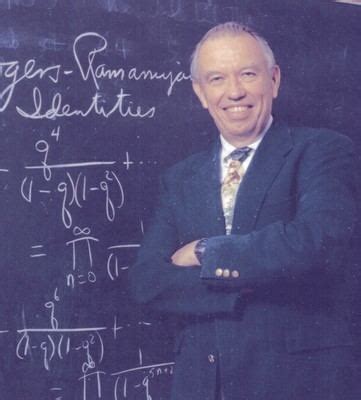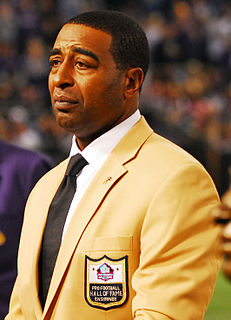Top 280 Analogy Quotes & Sayings - Page 4
Explore popular Analogy quotes.
Last updated on April 16, 2025.
I think the best analogy for where we are right now is that America is Elvis Presley -- the most beautiful, talented, rebellious nation in the history of Earth. And now, you're in your Vegas years. You've squeezed yourself into a white jumpsuit, you're wheezing your way through 'Love Me Tender' and you might be about to pass away bloated on the toilet. But you're still the King.
If I was to really get at the burr in my saddle, it's not politics - and this is, I think, probably a horrible analogy - but I look at politicians as they are doing what inherently they need to do to retain power. Their job is to consolidate power. When you go to the zoo and you see a monkey throwing poop, you go, 'That's what monkeys do, what are you gonna do?' But what I wish the media would do more frequently is say, 'Bad monkey.'
I stopped performing because I don't have the temperament of a performer. You have to want to do the same thing over and over again. Once I got it right, I didn't want to do it again. I always use the analogy of a novelist who has to read his novel in public night after night. I just didn't want to do it.
The state has been living on a revenue which was being produced in the private sphere for private purposes and had to be deflected from these purposes by political force. The theory that construes taxes on the analogy of club dues or of the purchase of the services of, say, a doctor only proves how far removed this part of the social sciences is from scientific habits of mind.
To criticize mathematics for its abstraction is to miss the point entirely. Abstraction is what makes mathematics work. If you concentrate too closely on too limited an application of a mathematical idea, you rob the mathematician of his most important tools: analogy, generality, and simplicity. Mathematics is the ultimate in technology transfer.
The fact that creative powers come from an area of the mind that seems to be independent of the conscious will, and often emerge with a good deal of emotional disturbance in their wake, provides the chief analogy between prophecy and the arts... Some people pursue wholeness and integration, others get smashed up, and fragments are rescued from the smash of an intensity that the wholeness and integration people do not reach.
It's funny: I've always had the analogy of a snow globe, that Hollywood is a snow globe. No, it's true. If you shake it up, you can look at it and really enjoy it. But don't ever go in. Don't ever buy into it and be like, 'I deserve all of this!' because it can go away at any time, so just have a lot of fun.
People have amazing ideas. The main problem - I won't call it a problem, let's call it a roadblock - is if you use the analogy of a convoy of vehicles going to help a distress situation: they have all the resources needed (food, medicine, everything they need), and as the convoy is traveling, there's a rockslide. You can't get through the road. What good does any of that stuff do when you can't get it to where it needs to go?
If the topic be highly abstract, show its nature by concrete examples. If it be unfamiliar, trace some point of analogy in it with the known. If it be inhuman, make it figure as part of a story. If it be difficult, couple its acquisition with some prospect of personal gain. Above all things, make sure that it shall run through certain inner changes, since no unvarying object can possibly hold the mental field for long.
People need to understand that what happens in people's homes and behind closed doors, unless you were there, you really shouldn't make any analogy or any assumption, which writers do quite a bit. It's not something I ever for one second thought about. This is not my life story, and I've never told my life story, and I have no interest in telling my life story.
Whoever wishes to acquire a deep acquaintance with Nature must observe that there are analogies which connect whole branches of science in a parallel manner, and enable us to infer of one class of phenomena what we know of another. It has thus happened on several occasions that the discovery of an unsuspected analogy between two branches of knowledge has been the starting point for a rapid course of discovery.
listen, a goad's anything that provokes or incites an enemy --- let me have a go: cursed deamon! you have met your end! the shivering fire awaits you! i shall spread your vile essance across this hall like... um, like margarine, a very think layer of it... --- ye-es... im not sure he'll pick up on that analogy. never mind, keep going.
There's a strong distinction to be made between dry code smart contacts and wet code's physical law. So law is based on our minds, our wetware - it's based on analogy. The law is more flexible; software is more rigid. Various laws tend to be batched in jurisdictional silos. Software tends to be independent.
Catastrophe Theory is-quite likely-the first coherent attempt (since Aristotelian logic) to give a theory on analogy. When narrow-minded scientists object to Catastrophe Theory that it gives no more than analogies, or metaphors, they do not realise that they are stating the proper aim of Catastrophe Theory, which is to classify all possible types of analogous situations.
When Arthur Schlesinger Sr. pioneered the 'presidential greatness poll' in 1948, the top five were Lincoln, Washington, Franklin D. Roosevelt, Woodrow Wilson, and Jefferson. Only Wilson appears to be seriously fading, probably because his support for the World War I-era Sedition Act now seems outrageous; in this analogy, Woodrow is like the Doors and the Sedition Act is Oliver Stone.
The piano is an instrument that can easily sound overly thick, and I love to think that I can work with textures - particularly the inner textures inside the melody or the bass line. There is an analogy there with painting; I love paintings where you see colour underneath the colour and, underneath that, more texture and shape.
How else could it have occurred to man to divide the cosmos, on the analogy of day and night, summer and winter, into a bright day-world and a dark night-world peopled with fabulous monsters, unless he had the prototype of such a division in himself, in the polarity between the conscious and the invisible and unknowable unconscious?
So Marxism, Freudianism: any one of these things I think is an irrational cult. They're theology, so they're whatever you think of theology; I don't think much of it. In fact, in my view that's exactly the right analogy: notions like Marxism and Freudianism belong to the history of organized religion.
The difference between a gourmet and a gourmand we take to be this: a gourmet is he who selects, for his nice and learned delectation, the most choice delicacies, prepared in the most scientific manner; whereas the gourmand bears a closer analogy to that class of great eaters ill-naturedly (we dare say) denominated, or classed with, aldermen.
Any one who has stood upon a lofty summit and gazed over an inchoate tangle of deep canyons and cragged mountains, of sunlit lakelets and black expanses of forest, has become aware of a certain giddy sensation that there are no distances, no measures, simply unrelated matter rising and falling without any analogy to the banal geometry of breadth, thickness, and height.
And when someone suggests you believe in a proposition, you must first examine it to see whether it is acceptable, because our reason was created by God, and whatever pleases our reason can but please divine reason, of which, for that matter, we know only what we infer from the processes of our own reason by analogy and often by negation.
Because the writer must be a participant in the scene, while he's writing it — or at least taping it, or even sketching it. Or all three. Probably the closest analogy to the ideal would be a film director/producer who writes his own scripts, does his own camera work and somehow manages to film himself in action, as the protagonist or at least a main character.
Birds and animals in the wild migrate every year to safer and nurturing pastures, leaving behind the old environment. After nurturing their young ones, they return to thrive in the old environs. I use that analogy to meditate. You migrate to your inner soul, nurture the strength, light and creativity there, and return.
Calvin: Today for show and tell, I've brought a tiny miracle of nature: a single snowflake! I think we might all learn a lesson from how this utterly unique and exquisite crystal turns into an ordinary, boring molecule of water just like every other one when you bring it into the classroom. And now, while the analogy sinks in, I will be leaving you drips and going outside.
I always use a really simple analogy: if you're putting organic food on your table because you care about eating well, shouldn't you be trying to do the same with what you're putting on your body? Our skin is our biggest organ. Everyday you are absorbing things through it. The way that a cream without the right ingredients can affect you, everything you put on your skin matters.
In the world of the very small, where particle and wave aspects of reality are equally significant, things do not behave in any way that we can understand from our experience of the everyday world...all pictures are false, and there is no physical analogy we can make to understand what goes on inside atoms. Atoms behave like atoms, nothing else.
No, not really. I mean, at the end of the day, it's just a part. You just go into it, and like your life, you're walking along the street, as a really bad analogy, you step on a little stone, and it just kind of flies away and you have no idea where it's going. And then you are just trying not to drown afterwards. And that's my life. See, that was really terrible.
We have said that consciousness is an operation rather than a thing, a repository, or a function. It operates by way of analogy, by way of constructing an analog space with an analog 'I' that can observe that space, and move metaphorically in it. It operates on any reactivity, excerpts relevant aspects, narratizes and conciliates them together in a metaphorical space where such meanings can be manipulated like things in space.
Consider the subtleness of the sea; how its most dreaded creatures glide under water, unapparent for the most part, and treacherously hidden beneath the loveliest tints of azure..... Consider all this; and then turn to this green, gentle , and most docile earth; consider them both, the sea and the land; and do you not find a strange analogy to something in yourself?
The parable of the talents is a good analogy of what happens when we give. When we merely try to hold on to what is given or entrusted to us, life may seem to take away even that. But when we choose to use what life has given us, the return of abundance can include friendship, companionship, financial blessings, homes, transportation, and security in wonderful ways. The universe holds nothing back from the one who lovingly and sincerely gives.
I like the little chess match of how people move through space. I'm not comparing myself to Michelangelo with this analogy, but he said when he sculpts it's like finding the sculpture within. It feels that way when you are with actors, too. There's a natural way to do this with a natural language that flows and feels like real people talking. And you've just got to find it. So I enjoy that part of the process.
Look who's calling the cauldron black." "Kettle. It’s a kettle. Get your metaphors right." "That wasn’t a metaphor. It was a, you know..." He stared off into space, blinking. "One of those things that’s symbolic of another thing. But isn’t the same thing. Just like it." "You mean a metaphor?" "No! It’s like a story...like...a proverb! That’s it." "I’m pretty sure that wasn’t a proverb. Maybe it was an analogy." "I don’t think so.
In the US the problem has been, for instance, that Nazis have rights of free expression, right? But other kinds of racist speech is not protected. And you have to link the speech to conduct or to a certain kind of threat against minority population. I know that in Europe, this kind of framework doesn't exist in the same way so it's very difficult to make the analogy.
We thought of life by analogy with a journey, a pilgrimage, which had a serious purpose at the end, and the thing was to get to that end, success or whatever it is, maybe heaven after you’re dead. But we missed the point the whole way along. It was a musical thing and you were supposed to sing or to dance while the music was being played.
Dinosaurs were huge and powerful; they could not adapt and they died out. And so the big difference between dinosaurs and cockroaches is adaptability: one is able to adjust, while the other, apparently, couldn't... The same analogy applies to fighting, and probably any other sport. It's not always the strong that survive. It takes brains, guts, tolerance and forward thinking. We've seen this since the beginning of mixed martial arts.
If you behave like a good citizen, and you upgrade and improve your property, your reward will be the government will take more money from you. So using that analogy, you should let your house become the shithole on the block and they'll reduce your taxes and you'll pay less. Be a bad citizen with your neighbors, right? You'll save money then.
A lot of people give up when the world seems to be against them, but that's the point when you should push a little harder. I use the analogy of running a race. It seems as though you can’t carry on, but if you just get through the pain barrier, you'll see the end and be okay. Often, just around the corner is where the solution will happen.
A fantastic analogy for the power of focus is racing cars. When your car begins to skid, the natural reflex is to look at the wall in an attempt to avoid it. But if you keep focusing on what you fear, that's exactly where you'll end up. Professional racers know that we unconsciously steer in the direction of our focus, so with their lives on the line, they turn their focus away from the wall and towards the open track.
I always find myself gravitating to the analogy of a maze. Think of film noir and if you picture the story as a maze, you don't want to be hanging above the maze watching the characters make the wrong choices because it's frustrating. You actually want to be in the maze with them, making the turns at their side, that keeps it more exciting...I quite like to be in that maze.
I believe in this being, not because I have any proper or direct knowledge of His existence, but I am at a loss to account for the existence and arrangement of the visible universe, and, being left in the wide sea of conjecture without a clue from analogy or experience, I find the conjecture of a God easy, obvious, and irresistible.
We use the Air Force analogy: there were expensive things they had to do to get a cockpit suitable for a lot of pilots, like wraparound windshields, but their initial solutions, when they realized average didn't work, were adjustable seats. How in the world did they not already have adjustable seats in their planes? We're looking for adjustable seats for education, for basic things that we can do.



























































